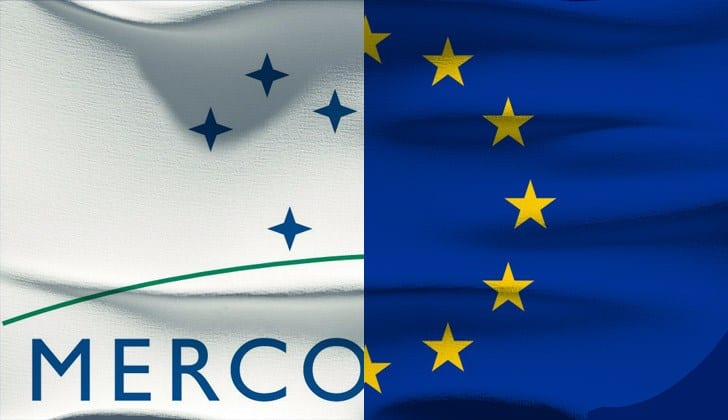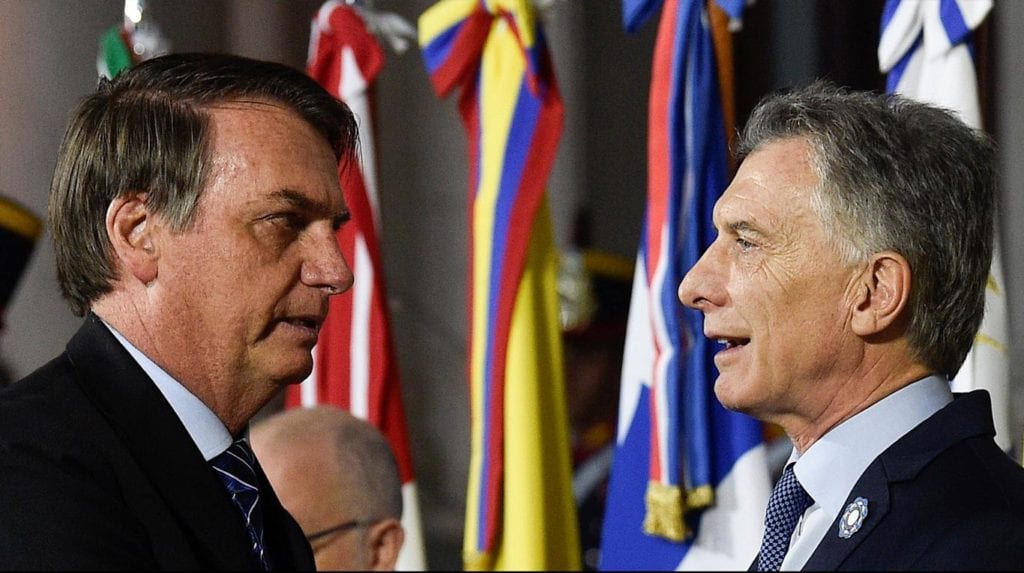The results of the “primaries” in Argentina not only stirred up the entire world community, but also particularly alarmed the “right-wing” forces in the region. First of all, it is worth noting the Brazilian leader Jair Bolsonaro, who expressed extreme concern for the future of South America, in case of victory in the second round of “left peronistas”. What should the region expect in case of a new “left” turn in Argentina?
MERCOSUR (Spanish – Mercado Común del Sur) is the largest trade and economic association in South America, founded on March 26, 1991, when a document was signed in Asuncion at the meeting of the presidents of Argentina, Brazil, Paraguay and Uruguay, which established the customs union and common market between four states. The associate members of the union are Bolivia and Chile. Today, MERCOSUR unites 250 million people and more than 75% of the total GDP of the continent.
At the end of June this year, the EU and the MERCOSUR South American Trade and Economic Union concluded a free trade agreement. This agreement seeks to abolish most duties on the export of goods from the EU to Argentina, Brazil, Paraguay and Uruguay – countries participating in the sub regional association. According to economic observers, European companies will be able to save about € 4 billion a year thanks to duty-free trading. The bilateral document covers automobiles and auto parts, chemical and pharmaceutical products, light and textile industries, as well as confectionery, alcoholic beverages and a number of food products.
According to official EU data, this agreement covers about 780 million people and will strengthen political and economic ties between the countries of the European Union and MERCOSUR. In addition, on June 28, a press release from the European Commission emphasized that the EU was the first major trading partner to conclude an agreement with a South American association.

The long-awaited signing of this agreement was preceded by lengthy and complex negotiations over the past 20 years. According to the terms of the document, Argentina, Brazil, Uruguay and Paraguay will be required to abolish duties within 10-15 years, while the EU will begin to exempt from export duties from the countries of the South American trade and economic union immediately after the agreement enters into force. To this end, the signatories will have to ratify the document. Nevertheless, such a historic step, as the signing of a free trade agreement between MERCOSUR and the EU, has become evidence of the viability of the sub regional association of Latin America.
However, after the announcement of the results of the first round of the presidential elections in Argentina, news immediately spread in the region that Brazil could withdraw from the South American common market. On August 15, Paulo Guedes (Port. – Paulo Roberto Nunes Guedes), the Minister of Economy of the largest state in Latin America, noted in his statement that in the case of victory in the presidential election in Argentina, representatives of the “left” forces led by Alberto Fernández (Spanish – Alberto Ángel Fernández), Brazil will leave the sub regional association.
According to Paulo Guedes, MERCOSUR is a tool with which countries can open their economies. The current Brazilian government believes that if Argentina takes over again, albeit as vice president, Cristina Kirchner (Spanish – Cristina Elisabet Fernández de Kirchner) will come to power and, as before, wants to close again, in this case the “South American giant” will exit the association. In his opinion, Brazil, at any outcome, will continue to work to open its economy to external players.
In addition, after the announcement of the results of the “primaries” in Argentina, which took place in the Latin American state on August 11, commenting on this event, the “far-right” Brazilian President Jair Bolsonaro (Port. – Jair Messias Bolsonaro), said that chaos would happen in the neighboring country in case of arrival to the presidential palace of the tandem Fernandez – Kirchner, whom the Brazilian leader called “left-oriented bandits”.
By the way, the Brazilian Minister of Economy in his statement mentioned the growing interest on the part of the United States in the conclusion of a trade agreement with the sub regional bloc. According to Guedes, if Macri (Spanish – Mauricio Macri) still won the victory in October, then Bolsonaro has a good relationship with him, and both of them have “friendly” relations with Trump (Donald John Trump). In this case, the White House will be able to move from rhetoric to practice at “high speed” and begin the negotiation process with MERCOSUR.

There is no doubt that changes in the economic policy of Argentina in the event the “left peronistas” come to power will affect the Brazilian economy and the general nature of relations between the two countries. It is believed that the signing of the historic agreement between the South American common market is, first of all, the merit of the Brazilian “ultra-right” leader Jair Bolsonaro and the current president of Argentina Mauricio Macri. A change in the Argentine government will entail a change in foreign policy guidelines, and will be able to affect the economic policy of this country, which will inevitably affect the economy of the largest country in Latin America.
However, only time will tell how impulsive statements and rash steps of the current leadership of Brazil can become a serious problem for MERCOSUR. Moreover, most likely, following pragmatic considerations, the “South American giant” will remain part of the South American common market, because its doors open to European partners will be able to “bribe” Bolsonaro.


